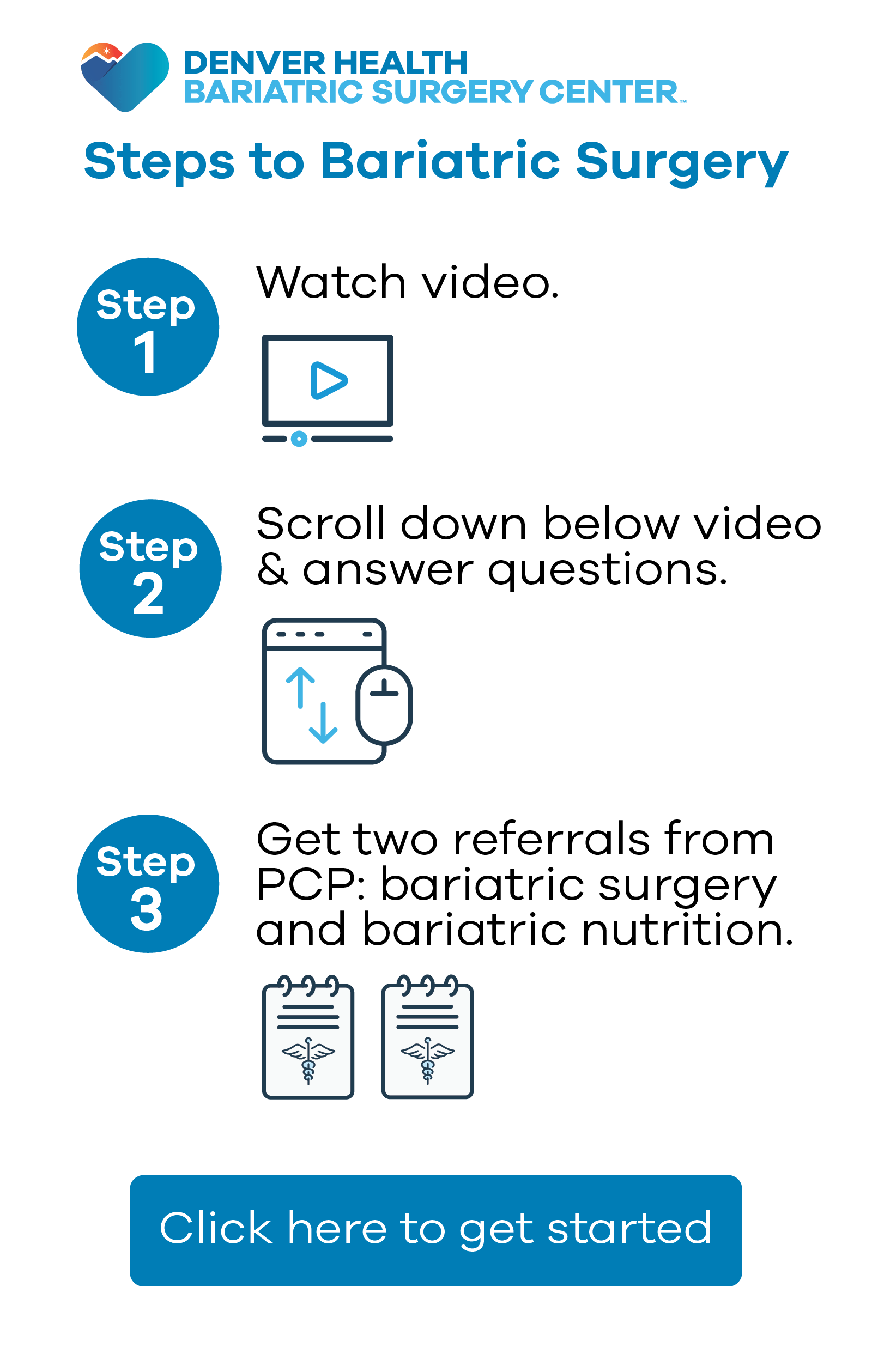Weight-loss surgery is only one part of Denver Health's surgical weight-loss program. In order to be successful, it is important to understand what to expect following surgery and how to maintain weight loss for long-term success.
Following Bariatric Surgery
Within the first six months after surgery, patients experience the most rapid weight loss, then a slower loss over the next 12 to 18 months. You will work with the team to learn how to eat for your new, small stomach. Patients undergoing weight-loss surgery are at high risk for vitamin and mineral deficiencies, and supplementation after bariatric surgery is required. Supplementation includes daily multivitamins containing iron and a calcium supplement. Additional iron and B12 supplementation may be required.
Some patients will experience diarrhea within the first few months due to partially digested food and others will experience constipation, although it is not uncommon to experience both diarrhea and constipation following surgery. During this time of rapid weight loss, excessive loose skin will likely develop from the loss of fat under the skin. Plastic surgery may be an option for some patients following surgery.




